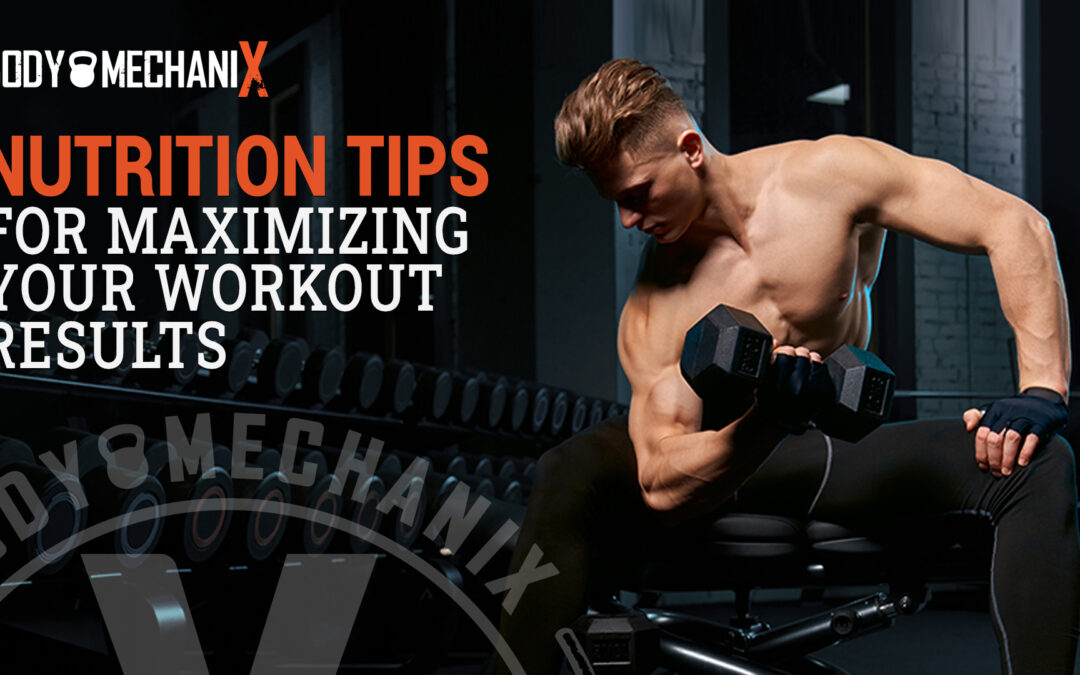Nutrition Tips for Maximizing Your Workout Results
Nutrition and exercise go hand in hand when it comes to achieving your fitness goals. Whether you’re aiming to build muscle, lose weight, or improve your overall fitness level, what you eat plays a crucial role in maximizing your workout results. In this blog, we’ll explore some essential nutrition tips that can help you get the most out of your workouts and reach your fitness aspirations faster and more effectively.
Pre-Workout Fuel:
Just as a car needs fuel to run, your body requires energy for workouts. Consume a balanced meal or snack containing carbohydrates, proteins, and healthy fats about 1-2 hours before your workout. This provides your muscles with the energy they need for optimal performance.
Hydration Matters:
Staying adequately hydrated is vital for exercise performance. Dehydration can lead to fatigue and cramping, which can hinder your workout. Drink water throughout the day and consider hydrating with an electrolyte-rich beverage, especially if you engage in intense or long-duration exercises.
Protein for Muscle Repair:
Protein is essential for muscle repair and growth. After your workout, have a protein-rich meal or snack to support the recovery process. Foods like lean meats, poultry, fish, beans, and dairy products are excellent sources of protein.
Carbohydrates for Energy:
Carbohydrates are your body’s primary source of energy. Consuming complex carbohydrates, such as whole grains, fruits, and vegetables, can provide sustained energy for your workouts. Post-workout, replenish glycogen stores with a carbohydrate-rich snack or meal.
Don’t Skip Post-Workout Nutrition:
Eating after your workout is crucial to replenish nutrients and promote recovery. Include both carbohydrates and protein in your post-workout meal or snack to refuel your muscles and aid in repair.
Nutrient Timing:
Timing is key when it comes to nutrition and workouts. Eating a larger meal 2-3 hours before exercise and a smaller, balanced snack 30 minutes to an hour before can optimize energy levels and performance.
Include Healthy Fats:
Healthy fats, such as those found in avocados, nuts, and olive oil, provide a source of sustained energy and support overall health. Include them in your meals to maintain energy levels during your workouts.
Avoid Processed Foods:
Highly processed foods, high in added sugars and unhealthy fats, can lead to energy crashes and poor workout performance. Opt for whole, nutrient-dense foods that provide a steady source of energy.
Supplements, if Needed:
While a balanced diet should provide most of your nutritional needs, some individuals may benefit from supplements like protein powder, creatine, or branched-chain amino acids (BCAAs). Consult with a healthcare professional or nutritionist before adding supplements to your routine.
Listen to Your Body:
Everyone’s nutritional needs are unique. Pay attention to how your body responds to different foods and meal timings. Experiment and adjust your nutrition plan based on your individual preferences and performance.
Nutrition is a powerful tool that can significantly impact your workout results. By fueling your body with the right nutrients at the right times, you can enhance your exercise performance, support muscle growth, and accelerate your progress toward your fitness goals. Remember that consistency is key, and making informed nutrition choices will help you maximize the benefits of your workouts and achieve the results you desire.

